
This conference was the second presented as part of a two-day Frontiers in Research Ethics event. To learn more about the prior conference, which focused on the future of informed consent, click here. To learn more about the trainings and workshops presented the afternoon of March 9, click here.

Leading speakers analyzed approaches to seeking consent from adults with diminished capacity; community-based participatory research; and pediatric assent and guardian permission.
Sponsored by the Consortium on Law and Values in Health, Environment & the Life Sciences; Office of the Vice President for Research; Human Research Protection Program; and Masonic Cancer Center, University of Minnesota.
Agenda and Videos
Thursday, March 9, 2017
Coffman Theater, Coffman Union
University of Minnesota

8:30 am
Welcome View Video
(moderator: Susan M. Wolf, JD, McKnight Presidential Professor of Law, Medicine & Public Policy; Faegre Baker Daniels Professor of Law; Professor of Medicine; Chair, Consortium on Law and Values in Health, Environment & the Life Sciences, University of Minnesota)
• Allen S. Levine, PhD, Interim Vice President for Research and Professor, Dept. of Food Science and Nutrition, University of Minnesota
8:45 am
Frontier Issues in Seeking Consent in Engaged and Community-based Participatory Research View Video
(moderator: Milton Eder, PhD, Chair, Biomedical Review Board; Assistant Professor, Dept. of Family Medicine & Community Health; Associate Director, Community Engagement to Advance Research and Community Health (CEARCH), Clinical and Translational Science Institute (CTSI), University of Minnesota)
• Sarah Gehlert, PhD, E. Desmond Lee Professor of Racial and Ethnic Diversity, George Warren Brown School of Social Work; Professor, Dept. of Surgery, School of Medicine; Co-Director, Center for Community Health and Partnerships, Institute for Public Health; Director, Center for Community Engaged Research, Institutes for Clinical and Translational Sciences, Washington University in St. Louis
Q/A
9:30 am
Frontier Issues in Seeking Pediatric or Adolescent Assent and Parent or Guardian Permission View Video
(moderator: Megan R. Gunnar, PhD, Regents Professor, McKnight University Professor, Chair and Director, Institute of Child Development, University of Minnesota)
• Eric Kodish, MD, Professor of Pediatrics and Bioethics at the Lerner College of Medicine of Case Western Reserve University; Pediatric Hematologist, Cleveland Clinic
Q/A
10:15 am
Creating a Trustworthy Research Enterprise View Video
(moderator: Kathleen Thiede Call, PhD, Professor, Health Policy & Management, School of Public Health; Community Engagement to Advance Research and Community Health (CEARCH), Clinical and Translational Science Institute (CTSI); Co-Director, Health Equity Work Group, School of Public Health, University of Minnesota)
• Sandra Soo-Jin Lee, PhD, Senior Research Scholar in Pediatrics and Medicine, Center for Biomedical Ethics, Stanford University School of Medicine
Q/A
11:00 am
Break (with distribution of box lunches)
11:15am
Panel Discussion View Video
(moderator: Michael T. Osterholm, PhD, MPH, Regents Professor; McKnight Endowed Presidential Chair in Public Health; Director, Center for Infectious Disease Research and Policy (CIDRAP); Professor of Environmental Health Sciences, School of Public Health, University of Minnesota)
- Michelle H. Biros, MD, MS, Interim Department Head & Research Director, Dept. of Emergency Medicine; Chair, Medical School Institutional Review Board, University of Minnesota
- Kathryn Cullen, MD, Assistant Professor and Division Chief, Child & Adolescent Psychiatry, Dept. of Psychiatry, University of Minnesota Medical School
- Paul Mattessich, PhD, Executive Director, Wilder Research; Chair, Community Oversight Board advising the Vice President for Research & Human Research Protection Program (HRPP), University of Minnesota
- J. Neil Henderson, PhD, Executive Director, Memory Keepers Medical Discovery Team on Health Disparities; Professor, Dept. of Biobehavioral Health and Population Sciences, University of Minnesota Medical School, Duluth View Slides
Q/A: panelists joined by Prof. Lee
1pm
Adjourn for afternoon events workshops and trainings
Speaker Biographies
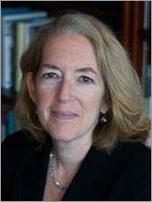
Susan M. Wolf, JD, is Chair of the conference planning committee. She is McKnight Presidential Professor of Law, Medicine & Public Policy; Faegre Baker Daniels Professor of Law; and Professor of Medicine at the University of Minnesota. Prof. Wolf is Chair of the Consortium on Law and Values in Health, Environment & the Life Sciences. She is an elected member of the National Academy of Medicine (NAM) and a Fellow of the American Association for the Advancement of Science. Prof. Wolf's research has been supported by the National Institutes of Health (NIH) and National Science Foundation (NSF) as well as private foundations including the Robert Wood Johnson Foundation and The Greenwall Foundation.
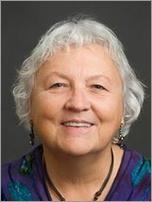
Michelle H. Biros, MD, MS, is Interim Department Head and Research Director of the Department of Emergency Medicine, and Chair of the Medical School Institutional Review Board at the University of Minnesota. She is an elected member of the Institute of Medicine (IOM) and past Editor-in-Chief for Academic Emergency Medicine. She's currently Principal Investigator for the University of Minnesota hub of the National Institute of Neurological Disorders and Stroke (NINDS)-funded Neurological Emergencies Treatment Trials network. She is also Co-PI of the University of Minnesota regional coordinating center for the NINDS-funded Stroke Net.
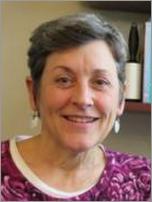
Kathleen Thiede Call, PhD, is Professor of Health Policy & Management in the School of Public Health; Community Engagement to Advance Research and Community Health (CEARCH); and Clinical and Translational Science Institute (CTSI). She is Co-Director of the Health Equity Work Group in the School of Public Health, all at the University of Minnesota. Her research focuses on access to care and health insurance among vulnerable populations, including poor, young, elderly, uninsured, rural and chronically ill populations; sociology of health and illness; and survey research methods.
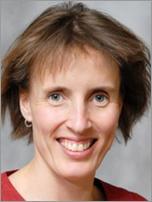
Kathryn Cullen, MD, is Assistant Professor and Division Chief of Child & Adolescent Psychiatry in the Department of Psychiatry at the University of Minnesota Medical School and serves on the faculty of the Center for Neurobehavioral Development. Prof. Cullen's research primarily focuses on depression and related problems in adolescents; her approaches includes the use of brain imaging to examine the biology underlying these problems in teenagers, and to elucidate the mechanisms of existing treatments for depression.
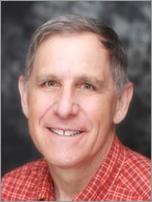
Milton "Mickey" Eder, PhD, is Chair of the Biomedical Review Board at the University of Minnesota. He joined the University of Minnesota Department of Family Medicine and Community Health research faculty in 2014. He conducts translational research and focuses on transforming the public's relationship to research, engaging communities in all aspects of research, and improving health outcomes. Eder is also interested in practice-based research to improve patient safety within primary care. Additionally, he is the Associate Director of the U of M Clinical and Translational Science Institute's (CTSI) Office of Community Engagement to Advance Research and Community Health. Previously, he served as the Director of research and evaluation programs at Access Community Health Network in Chicago for 10 years. At this network of federally qualified health centers, he organized and initiated research involving patient safety, health literacy, and health disparities, with the goal of improving individual and community health outcomes.
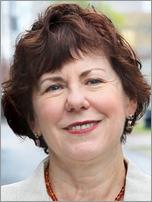
Sarah Gehlert, PhD, is the E. Desmond Lee Professor of Racial and Ethnic Diversity at the Brown School of Social Work and is on the faculty of the Department of Surgery of the School of Medicine at Washington University in St. Louis. She is a scholar in Washington University’s Institute of Public Health and serves on its Faculty Advisory Committee. Dr. Gehlert is the Co-Program Leader of the Prevention and Control Program of the Alvin J. Siteman Cancer Center, Co-Director of the Transdisciplinary Center on Energetics and Cancer (TREC), and Training Program Director of the Program for the Elimination of Cancer Disparities (PECaD). Prof. Gehlert serves on the Executive Committee of the university’s Institute for Clinical and Translational Science (a CTSA) and the Co-Chair of the Center for Community-Engaged Research.
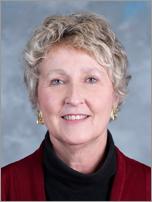
Megan Gunnar, PhD, is Regents Professor; Distinguished McKnight University Professor; Director (Department Chair) of the Institute of Child Development; and Associate Director, Center for Neurobehavioral Development, all the University of Minnesota. Her research focuses on how children and adolescents regulate stress physiology and emotions and the impact of early life stress on brain and behavioral development. Prof. Gunnar is a member of the Governor's Early Learning Council.
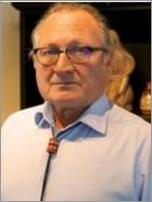
J. Neil Henderson, PhD, is Executive Director of the Memory Keepers Medical Discovery Team on Health Disparities at the University of Minnesota Medical School, Duluth campus and his research areas focus on dementia and diabetes among American Indian people. Specifically, his work is on dementia and diabetes as an interactive syndrome, biological and cultural influences regarding recognition and treatment of dementia and diabetes, cultural constructions of disease, and community health interventions and education in the context of cultural diversity. Dr. Henderson, who is Oklahoma Choctaw, was awarded the Leadership in Prevention for Native Americans, 2006, by the Loma Linda University School of Public Health and the Award of Achievement by the University of Oklahoma, College of Public Health. He is the former Editor-in-Chief of the Journal of Cross-Cultural Gerontology and past-President of the Association for Anthropology and Gerontology and has authored many articles in the scientific press.
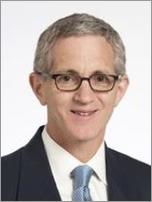
Eric Kodish, MD, is Professor of Pediatrics and Bioethics at the Lerner College of Medicine of Case Western Reserve University and a practicing pediatric hematologist at Cleveland Clinic. He recently completed 12 years of service as the F.J. O’Neill Professor and Chairman of Bioethics and Executive Director of the Cleveland Fellowship in Advanced Bioethics. Prof. Kodish is a member of the Advisory Council for the National Institutes of Health's National Center for Advancing Translational Sciences and a Fellow of the Hastings Center.

Sandra Soo-Jin Lee, PhD, is a Senior Research Scholar in Pediatrics and Medicine at the Center for Biomedical Ethics at the Stanford University School of Medicine and serves on the faculty in the Program in Science, Technology and Society (STS), also at Stanford. Dr. Lee is a medical anthropologist whose research focuses on the sociocultural and ethical issues of emerging genomic technologies and their translation into clinical practice. She leads studies on public attitudes towards governance and use of clinical samples and data in research, the ethics of scientific approaches to concepts of race, ethnicity and ancestry in human genetic variation, and the ethics of entrepreneurship and the social and cultural dimensions of innovation. Dr. Lee serves on the Scientific Advisory Board for the Kaiser Permanente National Biobank and the Genomics and Society Working Group at the National Human Genome Research Institute. She was past Chairperson of the Institutional Review Board at the Cancer Prevention Institute of California and served on the NIH Social and Ethical Issues in Research Committee for Scientific Review.
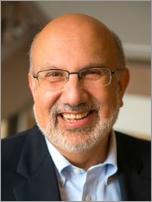
Allen S. Levine, PhD, is Interim Vice President for Research and Professor of Food Science and Nutrition at the University of Minnesota. Prior to his current position he was Vice Provost for Faculty and Academic Affairs; Dean of the College of Food, Agricultural and Natural Resource Sciences; and Head of the Department of Food Science and Nutrition. He was the Associate Director of Research and a Senior Career Scientist at the Minneapolis VA Medical Center for 26 years. He also founded the NIDDK-funded Minnesota Obesity Center and was its director for 20 years.
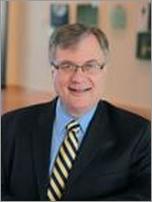
Paul Mattessich, PhD, has served as Executive Director of Wilder Research at the Amherst H. Wilder Foundation since 1982, and is Chair of the Community Oversight Board advising the Vice President for Research regarding the Human Research Protection Program (HRPP) at the University of Minnesota. At Wilder, he leads a team of approximately 80 researchers from multiple disciplines, who devote themselves to increasing the effectiveness of services, programs, organizations and policies intended to improve the lives of individuals, families, and communities. Dr. Mattessich has authored or co-authored more than 300 publications and currently sits on the boards of the Hamm Memorial Psychiatric Clinic and of Minnesota Community Measurement. He has an appointment as Adjunct Faculty in the Department of Youth Studies, School of Social Work, at the University of Minnesota. He received his doctorate in Sociology from the University of Minnesota.
Accreditation Statement
In support of improving patient care, University of Minnesota, Interprofessional Continuing Education is jointly accredited by the Accreditation Council for Continuing Medical Education (ACCME), the Accreditation Council for Pharmacy Education (ACPE), and the American Nurses Credentialing Center (ANCC) to provide continuing education for the healthcare team.
American Medical Association (AMA) Credit Designation Statements
The University of Minnesota, Interprofessional Continuing Education designates this live activity for a maximum of 4 AMA PRA Category 1 Credits™. Physicians should claim only the credit commensurate with the extent of their participation in the activity.
Other Health Care Professionals
Other healthcare professionals who participate in this CE activity may submit this statement of participation to their appropriate accrediting organizations or state boards for consideration of credit. The participant is responsible for determining whether this activity meets the requirements for acceptable continuing education.
Attorneys
The Minnesota Board of Continuing Legal Education approved this conference for 4.25 standard continuing legal education (CLE) credits. Event code is 235129.